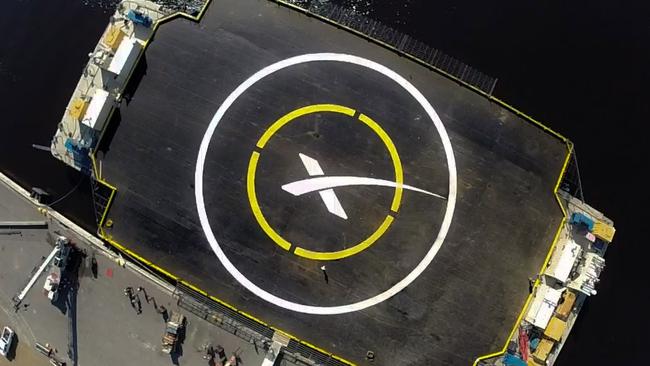SpaceX calls off launch to International Space Station, rocket landing on barge
SPACEX has aborted its Falcon 9 rocket launch at the last minute, postponing a landmark bid to try the first-ever platform landing of the rocket’s first stage.

SPACEX has aborted its Falcon 9 rocket launch at the last minute, postponing a landmark bid to open a new era of recycling rockets by landing a key part on a platform in the Atlantic Ocean.
The problem that led to the delay involved the rocket’s second stage, which is the portion that carries the cargo vessel to orbit after the first stage falls back to Earth.

“A thrust vector control actuator for the Falcon 9’s second stage failed to perform as expected, resulting in a launch abort,” said a NASA statement on Tuesday.
“SpaceX is evaluating the issue and will determine the next opportunity to launch.”
The California-based company headed by internet entrepreneur Elon Musk could make another launch attempt on Friday, and later refire the first stage engines to land it on a floating platform some 322 kilometres off the coast of northern Florida.
As of now, rocket launches cost hundreds of millions of dollars or more, largely because the rockets are allowed to fall in pieces into the ocean after lift-off, becoming rubbish and pollution.

Musk wants to transform the industry by honing technology that would allow rockets to return to Earth intact for use again and again, much like the airline industry does with passenger planes.
The company has made two attempts at controlled ocean landings already, and this launch would mark the first bid to land the rocket on a platform in the ocean.
Eventually, the company hopes to make rockets that can return to a landing spot on solid ground.




